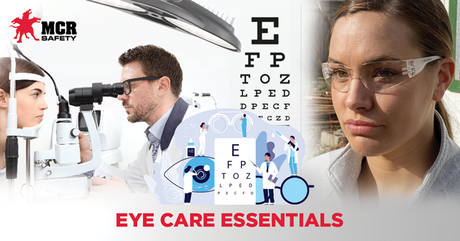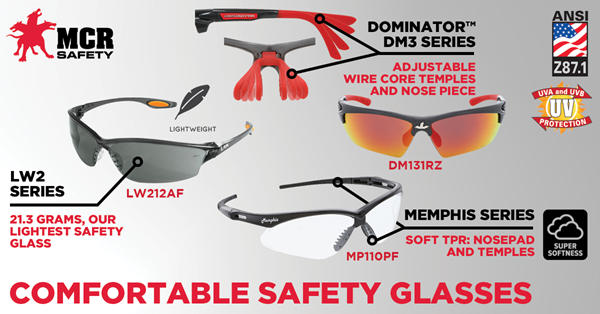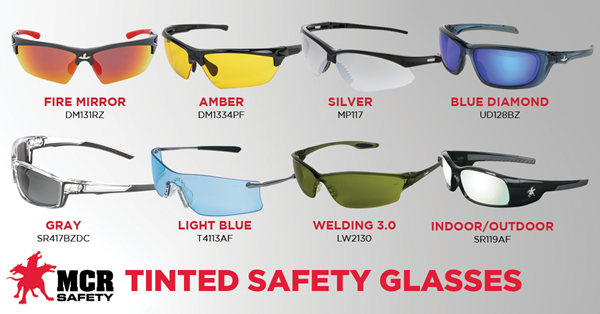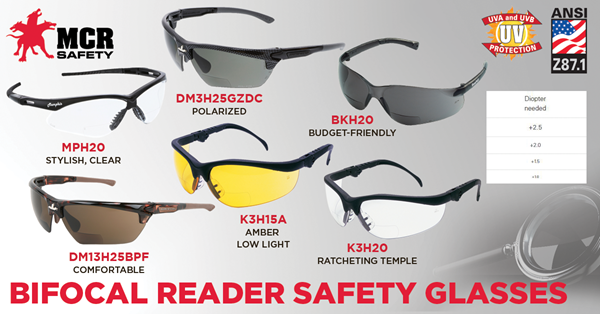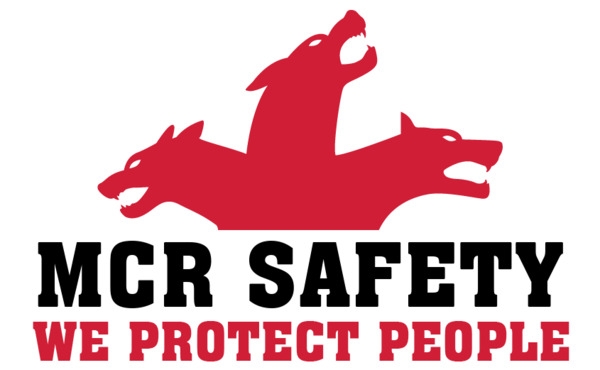Eye Care Essentials
Posted by Anthony Webb on Jul 17th 2025
Your eyes are among the most critical and complex sense organs in your body. They perceive up to 80% of the sensory details you collect from your surrounding environment and are crucial to your daily functioning. Without eyesight, your ability to make sense of the world around you becomes exponentially more challenging. Since the eyes play such a critical role in one’s overall health, you must take care of them.
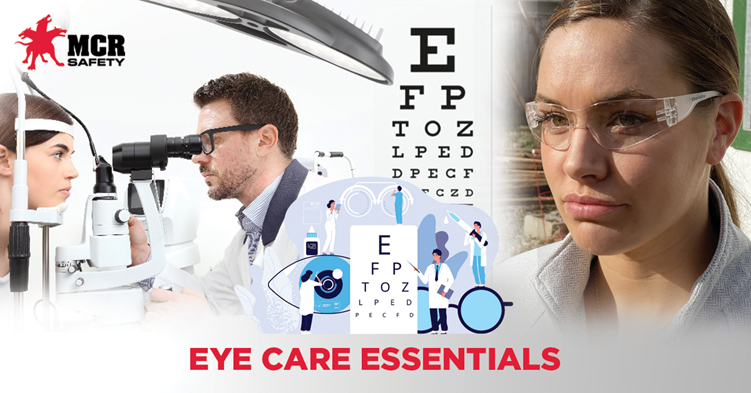
The Center for Disease Control and Prevention (CDC) estimates over 11 million Americans require vision correction. In addition, because of the aging U.S. population, the CDC forecasts that the number of people who will significantly lose their sight and become legally blind will double by 2030 and triple by 2050. These are alarming numbers and should instill some sense of urgency in making sure eye exams are part of your annual wellness checks. Unfortunately, only half of adults visit an eye doctor each year.
For those a little hesitant to proactively see an eye doctor, a clear understanding of eye care may be all you need to push you into scheduling that appointment and enhancing the quality of your vision. This article will dive into all facets of eye care, from what it involves to those who administer it to some tips for keeping your eyes healthy. And for Benjamin Franklin fans who follow his advice that “an ounce of prevention is worth a pound of cure,” you are in the right spot to find some high-quality safety glasses to prevent eye injury on the job.
Primary Eye Care Explained
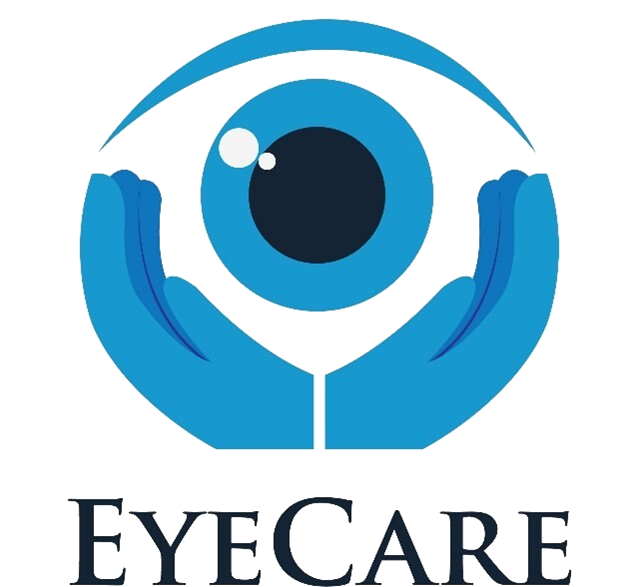
Primary eye care (PEC) is a comprehensive concept involving all frontline activities in keeping someone’s eyes free from diseases, especially those that lead to vision loss and even blindness. PEC aims to address areas of concern before they develop into something serious. Since it plays an integral role in maintaining optimal health, it is considered part of primary health care.
The indispensable parts of primary eye care derive from four activities:
1. Promotive – health education, accessible service for eye care
2. Preventive – regular eye exams, screening for diseases
3. Curative – eye treatment, prescribing glasses and contacts, performing surgery
4. Rehabilitative – restoring functional ability
PEC covers numerous activities that include nutrition, first aid management, and even injury prevention by wearing safety glasses. The image below shows all the healthcare individuals who may become involved in providing eye care.
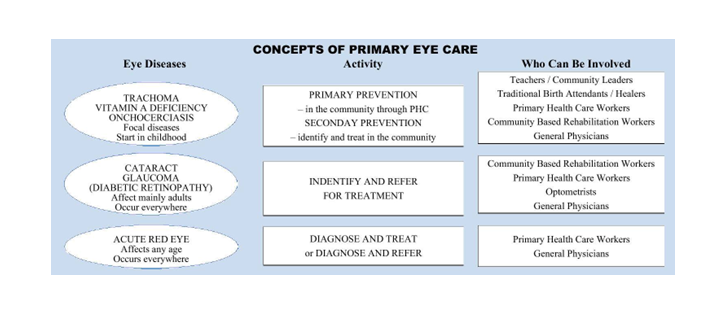
Numerous professionals play a vital role in keeping eyes healthy.
As a “frontline” activity, PEC provides a broad range of screenings with a licensed eye care specialist dedicated to thorough, relevant, and affordable services. Let’s break down the differences in who the professionals are in the eye care industry.
Optometrists vs. Ophthalmologists
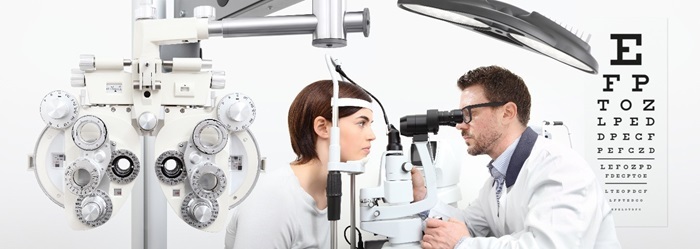
Two eye doctors provide eye care to patients: the optometrist and the ophthalmologist. The difference between optometrist and ophthalmologist deals with their level of education and what type of care they can provide.
So, what is an optometrist? Optometrists are professionals who complete a four-year program after college and receive a Doctor of Optometry degree. What does an optometrist do? They are certified to practice optometry, including performing eye exams and prescribing eyeglasses. Optometrists can also treat specific conditions like eye infections, dry eye, and glaucoma, and they can help monitor the effects of diabetes on the eyes. However, an optometrist is not a medical doctor, which leads us to our next eye care professional.
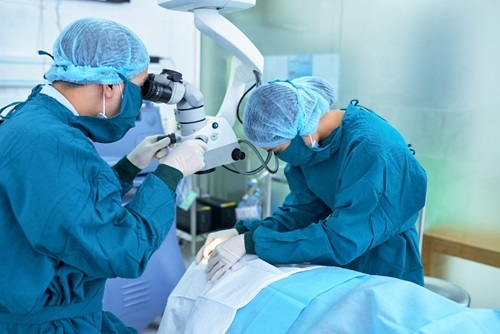
An ophthalmologist can perform eye surgery.
An ophthalmologist has a medical degree and is an M.D. (Doctor of Medicine) after completing 12 to 13 years of education. Their advanced education allows them to treat a broader range of eye ailments. Like optometrists, ophthalmologists offer routine exams and screenings. However, their medical and surgical training allows them to conduct surgery for glaucoma, cataracts, and other forms of trauma in and around the eyes. They can also treat more complex injuries at work, such as chemical burns.
Regardless of which type of eye doctor you choose, getting an eye exam is essential. It’s the preventive area of PEC that can identify the early stages of diseases. For those who’ve had a recent eye exam with no indication of severe disease, you may only need to visit a specialized technician like those outlined in the next section for follow-up care.
Optician Eye Care Specialists
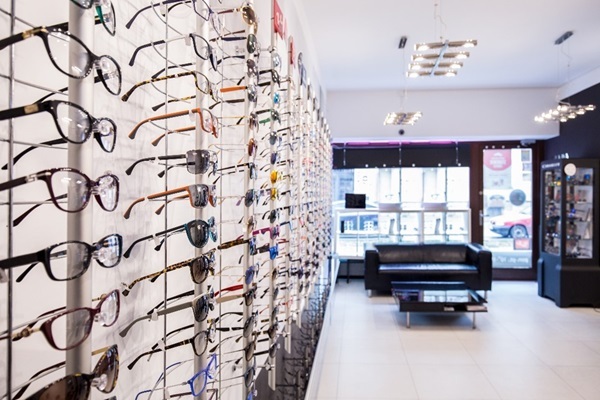
Not everyone maintains a 20/20 vision. An optician is the health professional you find when you enter a vision care store. They are responsible for getting you optical equipment based on the interpretation of the prescriptions from the optometrist or ophthalmologist. They will also check to ensure the prescription is correct, take facial measurements for frame fittings, and help with repairs or adjustments of eyeglasses or contact lenses.
These working eye professionals are trained either by technical schools or community colleges. 23 states require opticians to hold a license, though that license does not allow them to provide any health evaluations.
Routine vs. Comprehensive Eye Exam

Not all eye exams are the same. A routine exam, which typically lasts around 30 minutes, identifies immediate vision impairments that the patient may or may not have begun to notice. The most common impediment is refraction, which distorts a person’s vision, often making it difficult to see objects far away (short-sightedness) or close up (far-sightedness). Roughly 80% of all vision impairments are due to refraction. A routine exam can also correct distortions due to astigmatism (unusual curvature of the lens or cornea of the eye) or presbyopia (age-related loss of the ability to focus on nearby objects, like when reading).
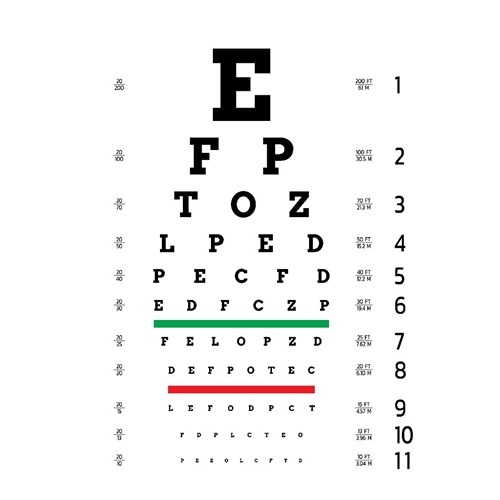
Most will recognize this eye test as it’s part of both routine and comprehensive eye exams.
A comprehensive eye exam provides a more in-depth evaluation of one’s eye health. This more extended exam screens for common eye diseases like cataracts and glaucoma. It also checks for abnormalities with the eye’s muscle movement, shape, optic nerve, retina, and internal pressure. Here is what you can expect to take place during a comprehensive eye exam:
- A visual acuity test, also performed in a routine eye exam, checks your ability to read an eye chart from twenty feet away and helps to determine whether you have trouble seeing things at a distance.
- A slit lamp exam checks the shape of your eyeball and identifies potential abnormalities that may exist.
- Tonometry is a test used to measure the eye’s interior pressure. Variations in intraocular pressure may indicate glaucoma.
- Your eyes will be dilated to allow increased light into the eye, allowing the eye care professional to see all critical tissues.
- A cover test checks how each eye acts independently.
- The ocular motility test examines the movement of your eyes and assesses the extraocular muscles, looking for any weaknesses or uncontrolled eye movements.
- A visual aid test examines your peripheral vision, as loss of it may provide signs of potential glaucoma.
As part of their overall wellness plan, everyone should visit either an optometrist or ophthalmologist to get their eyes checked annually. Otherwise, you risk losing your sight. If you experience unusual symptoms such as total or partial vision loss, eye pain, double vision, halos, floaters, blind spots, distorted vision, or discharge, schedule an appointment with an eye care professional immediately.
How to Take Care of Your Eyes

The best way to care for your eyes is by regular visits to your eye care professional to get an eye . In addition, you can build a few simple habits into your daily routine that can make a significant difference in the overall health of your eyes. Here are eight to consider:
- Wear sunglasses or tinted safety glasses to protect your eyes from the damage of UV rays. All MCR Safety glasses block 99.9% of UVA/UVB/UVC up to 385 nm within the UV light spectrum.
- Wear protective eyewear to reduce the risk of injury during athletics, industrial workplace activities, and home improvement projects.
- Rest your eyes at regular intervals (20 seconds of rest every 20 minutes) to reduce the eyestrain that correlates with prolonged screen time. You may want to consider blue light glasses if you spend all day at work in front of a screen.
- Quit smoking as soon as possible, as eye conditions are twice as likely for smokers.
- COVID has reinforced a habit that all should continue: don’t rub your eyes. Germs are all over your hands, and your eyes are a gateway for diseases to enter.
- Investigate your family health history. If eye diseases have plagued other family members, you may be next.
- Get ample sleep and allow this vital organ to get some rest.
- Eat a healthy, balanced diet filled with various fruits, vegetables (predominantly yellow veggies and leafy greens), and omega-3 fatty acids (like those found in salmon, tuna, or halibut).
Safety Glasses and Magnified Eye Protection
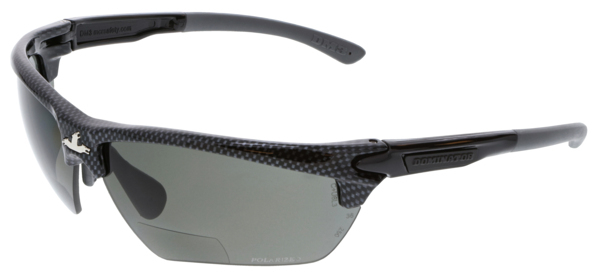
Each year, more than 300,000 eye injuries occur. The good news is that over 90% of these injuries are preventable and could have been avoided if safety glasses had been worn. Since prevention is a crucial part of eye care, remember that eye protection is 100% necessary if you are exposed to airborne hazards, whether at work or home.
We’ve been protecting people’s eyes since the 1980s and have one of the broadest assortments of safety glasses and goggles available. Our eye and face protection catalog breaks up our product lineup into safety glasses, goggles, face protection, and sealed eyewear. Below are some of the brand-new styles we’ve recently introduced.
Comfort is the top feature users seek.
We offer a wide range of lenses.
Our lineup of safety glasses also includes readers. Check out that polarized magnifier style!
Common Questions

Should I go to urgent care for pink eye?
- Although some cases of pink eye can clear up on their own, more severe or prolonged symptoms will require medical care. It is always good to have a medical professional evaluate pink eye.
Does Medicare cover eye care?
- Medicare does not cover routine eye exams, nor does it cover the cost of glasses or contacts.
How should I care for a black eye?
- Often, a black eye can be treated with a cold compress that will help reduce swelling. However, other symptoms might require further treatment, such as an open cut or wound, vision problems, or severe pain.
How should I care for a scratched eye?
- Many eye scratches are minor and will heal on their own, but you can help the healing process by rinsing your eye, blinking repeatedly, and avoiding any irritants to the eye. WebMD recommends getting immediate medical attention for any following symptoms: blurred vision, eye aching, tearing, redness, light sensitivity, irritation, or struggle with opening the eye.
How do I take care of dry skin around the eyes?
- Dry skin can appear around the eyes for various reasons that require varying treatments. Drinking more water, using moisturizers, and discontinuing the use of harsh skin products are common treatments.
Is an optometrist a doctor?
- No, they are not an eye doctor. An ophthalmologist has a medical degree and is an M.D. (Doctor of Medicine)
Can I go to urgent care for eye problems?
- Yes. If you have an eye injury or experience sudden vision loss or eye pain, you should visit urgent care for immediate help.
Protecting Eyes
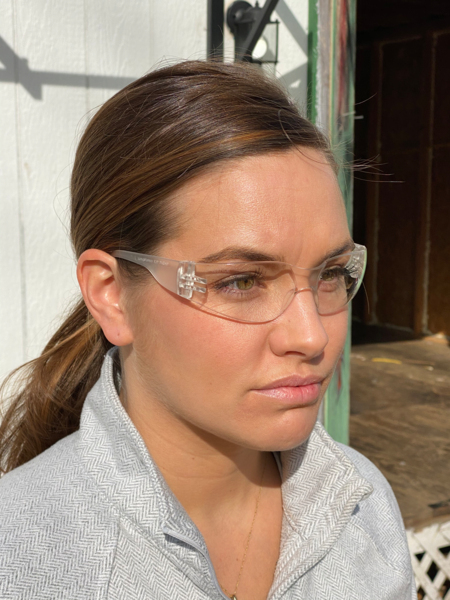
You only get one set of eyes in life, so you should never disregard the care required to keep them in tip-top shape. Getting regular eye exams is the best way to ensure your eyes are healthy for your entire life. And, if you’re involved in activities that may lead to an eye injury, don’t forget to keep your eyes protected with safety glasses. At MCR Safety, We Protect People, and we hope our commitment to your eye care protection is evident in the information we’ve provided above and in our products.
Click the below image to leave us comments, questions, or any concerns.
For over 45 years, MCR Safety has proven to be a world leader in gloves, glasses, and garments. Whether it's protecting workers' eyes by keeping UV light out or protecting them from airborne hazards and debris as they weld in the machine shop or work on a construction site, we provide solutions to workplace hazards. It's all part of our commitment to protect people.
No matter your industry, we have the personal protective equipment you need.
Learn more about MCR Safety by checking out our most recent video. For more information, browse our website, find a distributor, or give us a call at 800-955-6887.

